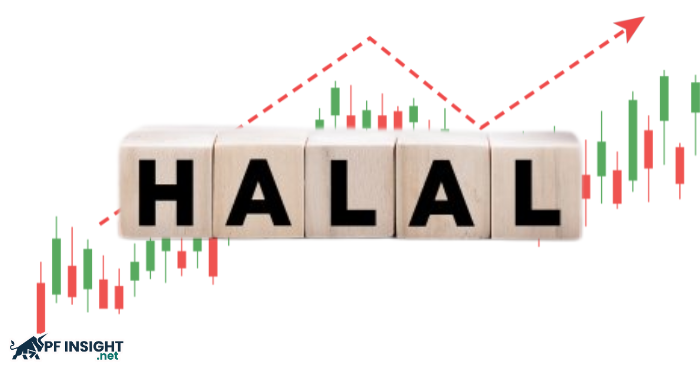Prop firm trading is becoming increasingly popular, especially among Muslim traders who are seeking new trading opportunities without having to commit large amounts of personal capital. However, alongside this growth, an important question arises: is prop firm trading truly halal according to Sharia law?
PF Insight will help you understand the concept of prop firm trading halal, the key Islamic financial principles to keep in mind, the essential factors for assessing whether a prop firm is halal or haram, and the common risks that Muslim traders should avoid before participating.
- Prop Firm rules explained: What every trader must know
- Top 10 best Prop Firms 2025 for new trader
- Top 7 prop trading firms offering lucrative referral system
What is prop firm trading?
Prop firm trading is a model in which traders do not use their own capital to trade but instead use the capital provided by a prop firm. To participate, traders typically go through an evaluation phase to prove their trading ability. If they meet the requirements, they are given a funded account to continue trading and share profits based on a predetermined ratio.
Unlike trading with a personal account, where traders bear all the risks using their own capital, prop firm trading allows them to access larger funds without needing to invest the equivalent amount themselves. This is why the model has become increasingly popular within the trading community, including among Muslim traders.
However, each prop firm has its own rules, fee structures, and contractual terms. These are exactly the elements that need to be carefully examined when assessing whether a particular prop firm model complies with halal principles.
What makes a financial activity halal or haram?

Before determining whether a financial activity is halal (permissible under Sharia) or haram (prohibited), Muslim traders need to understand the fundamental principles of Islamic finance. These principles apply not only to traditional investments but also to modern models like prop firm trading.
- The first and most important principle is the prohibition of riba (interest). Any transaction that involves earning or paying interest is considered haram.
- The second principle is avoiding gharar, which refers to ambiguity, lack of transparency, or involvement in transactions with unclear or excessive risk.
- The third principle is avoiding maysir, which means refraining from activities that resemble gambling or speculative betting.
In addition, for a financial transaction to be considered halal, it must have a clear and transparent contract that defines the rights and responsibilities of all parties involved. There must also be a genuine risk-sharing element, rather than shifting all risks to one party.
These criteria form the foundation for evaluating the halal status of the prop firm trading model in the following sections.
Is prop firm trading halal?
Prop firm trading is not automatically considered halal or haram. Its Sharia compliance depends on the specific operational structure of each prop firm and how the trader participates. Below are the key factors that Muslim traders should carefully examine before making a decision.

Evaluation fees and refund policies
Most prop firms require traders to pay an evaluation fee to participate in their challenge. If the trader passes, this fee may be refunded, or the trader may be moved to a funded account.
However, if this fee is non-refundable and functions merely as a “participation fee” without any clear service value, some scholars may view it as resembling maysir (gambling). In essence, the trader is “staking” that amount of money for a chance to gain access to a funded account.
On the other hand, if the company has a transparent process, refunds the fee upon meeting the targets, and provides genuine services, this structure aligns more closely with Sharia principles.
Profit-sharing structure
Another key factor is the profit-sharing structure between the trader and the prop firm. In a halal model, the financial partnership should follow the mudarabah structure, where one party provides the capital, the other executes the trades, and profits are shared transparently based on a pre-agreed ratio.
If the prop firm truly allocates real capital to the trader, shares profits according to clear terms, and bears part of the trading losses, then the structure can be considered Sharia-compliant.
However, if the firm does not actually take on any risk and only provides a simulated environment without genuine financial partnership, then halal/haram concerns may arise.
Swap-free accounts and riba concerns
Riba (interest) is a clearly haram element in Islamic finance. Many funded accounts offered by prop firms still apply swap fees (overnight interest), meaning interest is charged if positions are held overnight. In such cases, trading would be considered haram.
Some prop firms offer swap-free accounts, usually designed specifically for Muslim traders. This is a more Sharia-compliant option. Therefore, when evaluating a prop firm, Muslim traders should carefully check whether the funded account supports a swap-free structure.
Contract transparency and risk sharing
Sharia requires financial contracts to be clear, transparent, and to define the rights, obligations, and risk-sharing arrangements of all parties involved. Some prop firms, however, use complex or non-transparent terms and place all the risk on the trader (for example, terminating the account immediately for a minor breach while the company bears no loss).
If the contract does not reflect genuine risk sharing and instead functions more like a “challenge game” designed primarily to collect fees from traders, such a structure may be considered non-compliant with Sharia principles.
Common pitfalls Muslim traders should watch out for

While prop firm trading can provide access to substantial capital without requiring large personal investment, Muslim traders should be aware of several common risks to avoid violating Sharia principles:
- Not reading contracts and terms carefully: Some prop firms have complex or non-transparent agreements. If traders don’t examine them closely, they may unknowingly participate in structures involving haram elements such as swaps, hidden fees, or unfair conditions.
- Joining challenges without understanding the fee structure: Some firms charge non-refundable evaluation fees that resemble gambling. Participating without fully understanding the structure may lead traders into a model that is not Sharia-compliant.
- Confusing real accounts with simulated ones: Some firms don’t actually provide real capital but instead use simulated accounts to collect fees from traders. In such cases, there is no genuine financial partnership, and many scholars consider this non-halal.
- Not seeking fatwas or guidance from qualified scholars: Since this is a relatively new financial model, many traders rely on their own judgment. Consulting credible Islamic scholars or financial institutions is an essential step to make informed and compliant decisions.
FAQs
Is prop firm trading halal or haram?
Prop firm trading is not automatically halal or haram. It depends on how each company structures its contracts, fee systems, accounts, and risk-sharing models. If the structure follows Sharia principles (no riba, transparency, and genuine risk sharing), then it can be considered halal.
Is trading with funded accounts halal?
Trading with funded accounts can be halal if the prop firm provides real capital, shares profits transparently, and does not involve riba elements such as overnight swap fees. On the other hand, if the account is simulated or has unclear terms, halal compliance issues may arise.
What kind of prop firm is halal?
A Sharia-compliant prop firm typically has:
- Transparent fee structures that do not resemble gambling.
- Clear mudarabah-style contracts with fair profit-sharing.
- Support for swap-free accounts.
- Genuine risk-sharing policies.
Muslim traders should prioritize firms with clear and transparent rules to ensure compliance with Islamic finance principles.
Conclusion
Evaluating whether a prop firm trading halal depends on each company’s specific structure: how they design contracts, share risk, set fee policies, and the types of accounts offered. Some prop firms may fully meet Sharia principles such as transparency, no riba, and support for swap-free accounts, while others may have structures that closely resemble betting.
For Muslim traders, participating in prop firm trading halal requires careful consideration. Read the terms carefully, assess each element against Sharia principles, and seek guidance from reputable scholars before deciding. This cautious approach will help you choose a prop firm that aligns with both your trading objectives and your values.
Follow us on Trading Basics to stay updated with more articles on this topic!







